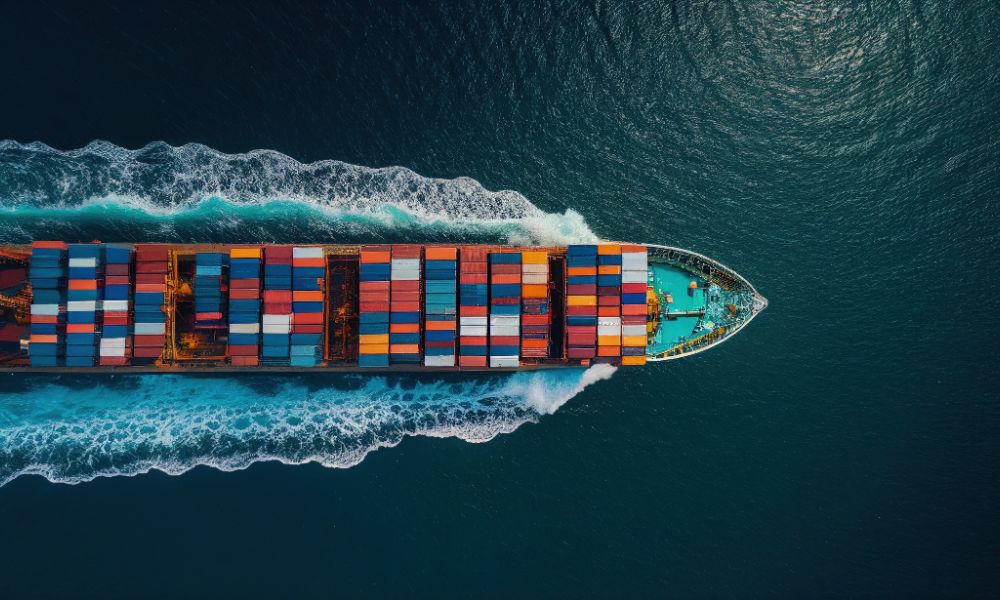HDI Global Insurance Pursues Shipping Giants Over $2 Million Cargo Claim After Devastating Sea Incident
A catastrophic cargo loss at sea has ignited a high-stakes legal battle, with HDI Global Insurance Company demanding over $2 million from major shipping and logistics firms. The insurer filed a lawsuit on August 29, 2025, in the U.S. District Court for the Southern District of New York, blaming negligence for the overboard loss and damage of valuable shipments.
The Incident: Containers Lost and Damaged in the South Atlantic
On or about August 28, 2024, the container ship M/V MSC ANTONIA encountered severe trouble in the South Atlantic Ocean off the coast of South Africa. Numerous containers tumbled overboard and vanished into the depths, while others suffered extensive damage from a stow collapse. The affected cargoes, shipped from Asia to the United States via ocean carriage, were valued at $2,002,586.08 in total claims.
HDI alleges that the cargoes were delivered to the defendants in pristine condition, with agreements in place for safe transport to U.S. destinations. The insurer stepped in to cover the losses for shippers, consignees, and owners under active policies, positioning itself as subrogee to reclaim the funds. This subrogation allows HDI to step into the shoes of the insured parties and pursue recovery directly from those it holds responsible.
Defendants and Specific Claims: A Web of Logistics Players
The lawsuit targets a consortium of industry heavyweights, including MSC Mediterranean Shipping Company S.A. (MSC), the operator of the vessel, and several U.S.-based logistics firms. Named defendants are BDP Transport Inc., Interport Global Logistics USA Inc., C.H. Robinson International, Inc., Flexport International LLC, Kuehne + Nagel Inc., and Expeditors International of Washington, Inc.
Breakdown of the claims includes:
- $226,226 against MSC and BDP Transport.
- $1,568,053 against MSC and Interport Global Logistics.
- $27,581 against MSC and C.H. Robinson, with additional amounts against other pairs for the remaining shipments.
The venue in New York stems from forum-selection clauses in the bills of lading, sea waybills, and contracts of carriage. HDI accuses the defendants of breaching duties as carriers and bailees through negligence and careless handling, violating statutory, contractual, and common law obligations.
Background: HDI’s Role in Marine Cargo Insurance and Rising Maritime Risks
HDI Global Insurance, part of the Talanx Group, specializes in comprehensive marine cargo solutions, offering “all risks” coverage for goods transported by sea, air, rail, or truck. With operations in over 130 countries, the company emphasizes risk prevention through engineering strategies and rapid claims handling to safeguard client liquidity. In 2024, global shipping faced heightened challenges, including container losses from storms and conflicts in regions like the Red Sea, where war risk premiums surged up to 2,700%.
This incident echoes a similar event on the same vessel, where XL Specialty Insurance pursued $1.6 million for lost pharmaceutical cargo from India to the U.S., also involving MSC and Expeditors. Such cases highlight vulnerabilities in global supply chains, where annual transport damage exceeds €4 billion, much of it preventable with better packaging and loading practices. HDI’s proactive recourse against third parties is a core service, ensuring clients recover value post-claim.
Expert Opinions and Industry Reactions
Maritime law experts view the suit as a standard subrogation action but note its scale could pressure carriers to improve stowage protocols. “Incidents like this underscore the need for robust risk engineering in high-seas transport,” said one analyst, pointing to HDI’s network of 180 global engineers for damage prevention. Logistics insiders on platforms like LinkedIn express concern over recurring MSC vessel issues, with one post stating, “Another claim on MSC Antonia—time for the industry to demand accountability in container securing.”
Shipping associations have called for international standards to mitigate stow collapses, especially amid climate-driven storms. HDI’s CEO emphasized in recent statements the firm’s commitment to “innovative solutions” for supply chain resilience, aligning with broader industry pushes for sustainable practices. Reactions from defendants remain pending, but similar cases have led to settlements emphasizing joint liability.
Impact on U.S. Readers: Supply Chain Disruptions and Economic Ripples
For U.S. businesses and consumers, this dispute hits close to home, as the lost cargoes were bound for American ports, potentially delaying imports from Asia and inflating costs in sectors like manufacturing and retail. With global trade reliant on efficient shipping, such incidents contribute to broader supply chain vulnerabilities, echoing Red Sea disruptions that drove up insurance and freight rates by thousands of percent.
Economically, higher claims could raise marine insurance premiums, affecting U.S. exporters and importers who face increased logistics expenses—potentially adding billions to annual trade costs. Politically, it spotlights U.S. regulatory oversight of international carriers via forums like New York courts, influencing trade policies and food security amid global conflicts. For American firms using logistics giants like C.H. Robinson or Expeditors, this serves as a reminder to scrutinize contracts for liability clauses, while tech-savvy readers might explore blockchain for better cargo tracking to prevent future losses.
Conclusion: A Call for Accountability in Global Shipping
HDI Global Insurance’s pursuit of over $2 million from shipping titans underscores the perils of ocean transport and the insurer’s role in holding carriers accountable. As the case unfolds in New York federal court, it promises insights into negligence standards and subrogation practices.
Looking forward, expect heightened focus on preventive measures like advanced stowage tech and international cooperation to curb losses. This lawsuit not only seeks financial recovery but also pushes the industry toward safer, more reliable global trade routes.
